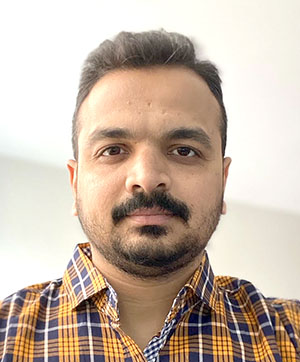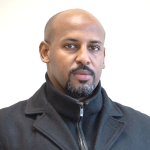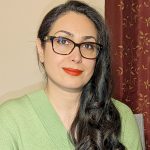Written by Sharon Aschaiek
Language course helps immigrant understand Ontario health workplaces
For the last year, Vishal Modha has been working as a dental assistant at a practice in Ottawa. He supports the dentist, answers clients’ questions and takes notes on cases. It’s a satisfying role, he says, and one that will sustain him until he can start his own dental practice.
What is noteworthy about his journey to building his career in Canada is that it was facilitated by Occupation-specific Language Training (OSLT).
Vishal is an immigrant from India who moved here with his wife in December 2019. In India he enjoyed a rewarding seven-year career as a dental surgeon, but struggled to strike a healthy work-life balance. He and his wife set about pursuing permanent residency in Canada.
OSLT has helped open the door to Vishal’s new future. This series of free work-related language courses is geared to helping newcomers develop the communications skills and cultural knowledge to succeed in their chosen sector.
For Vishal, this training took place at Algonquin College through an OSLT course called Workplace Communication Skills for Health Care. He took this course together with his wife, an Ayurvedic medicine practitioner now preparing to become a dental hygienist. The course teaches how to communicate effectively in Ontario health care workplaces such as hospitals, dental clinics and long-term care homes, and make valuable career-building connections in the sector.

Vishal Modha, Dental Assistant
I was happy to discover a course that would support me professionally by helping me gain some experience in interacting in local health settings.
Throughout the course, Vishal learned how to communicate effectively with colleagues, clients and supervisors in a variety of ways—in person, by phone, by email, in meetings. The learning took place through a mix of formats, including practical assignments, role-playing scenarios and informal practice with classmates.
“We had some exercises where we had to prepare and deliver a presentation, and another that involved taking the medical history of a patient—they were great ways to express ourselves and demonstrate what we were learning,” Vishal says.
A key part of the learning involved understanding the cultural norms and power dynamics common to health care workplaces in Ontario. Topics included the level of responsibility and autonomy for different employees, collaborating as part of a team, relating to supervisors and making small talk.
“Making chit chat with colleagues isn’t as common in India, but here, it’s considered rude not to do so. This has helped me a lot with feeling comfortable in the workplace,” he says.
Through the course, Vishal advanced professionally in another key way: by networking with his classmates—other health care practitioners from India as well as Dubai, Pakistan, the Philippines and Syria. Many have become part of his professional network and they continue to share job leads with each other.
“From what I learned in the course, and thanks to the very organized and committed [faculty], my workplace language proficiency improved,” says Vishal, who is currently exploring the next steps to become a licensed dentist in Canada. “It’s an excellent opportunity for newcomers who are struggling to integrate into the workforce.”
Occupation-specific Language Training (OSLT) courses are free workplace communication training courses for immigrants. They are available full-time or part-time, in class or online. These courses are offered at many Ontario colleges and cover a range of occupations in business, construction, health sciences, human services and technology. OSLT is funded by Immigration, Refugees and Citizenship Canada (IRCC) and coordinated by Colleges Ontario.






